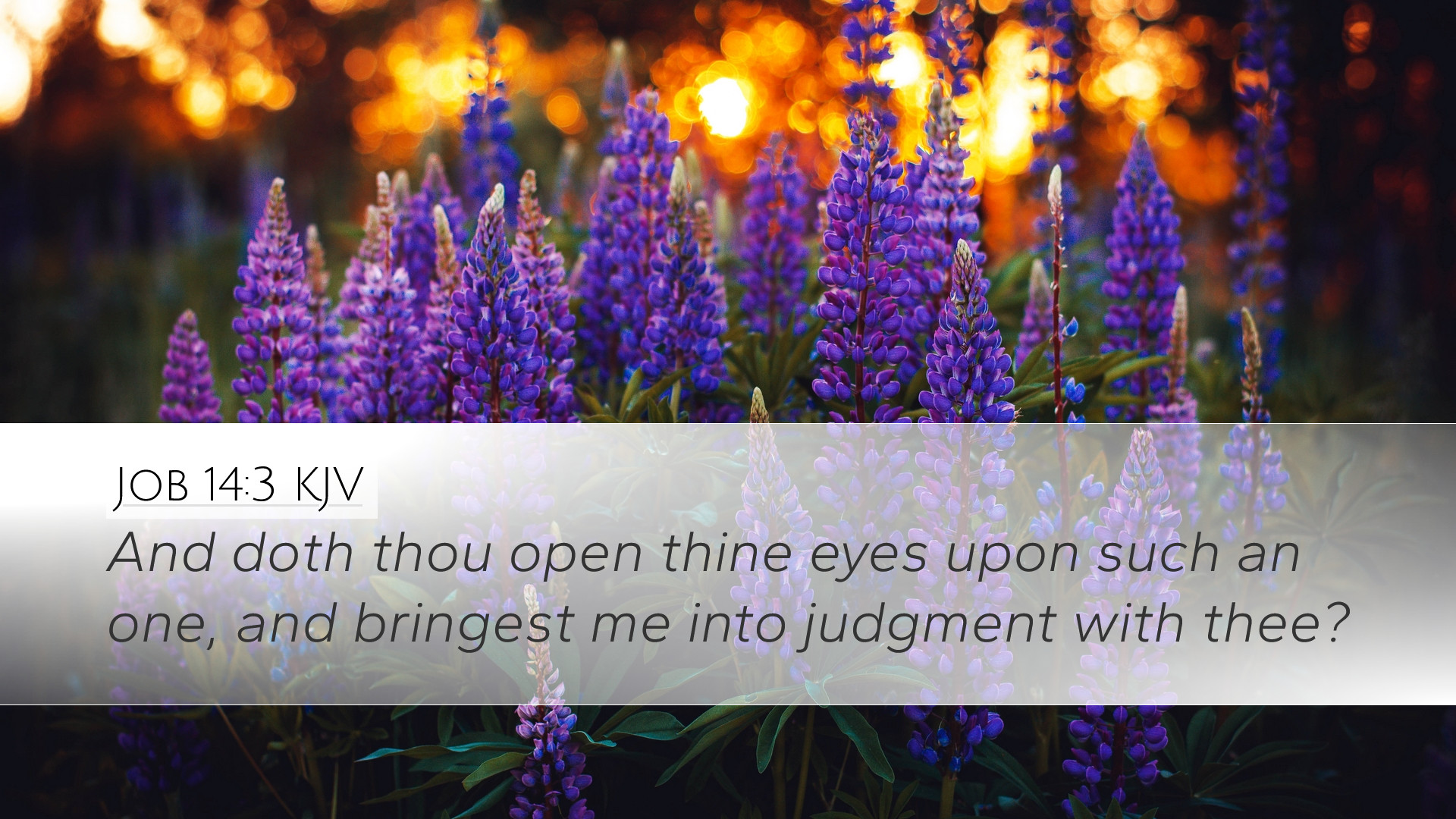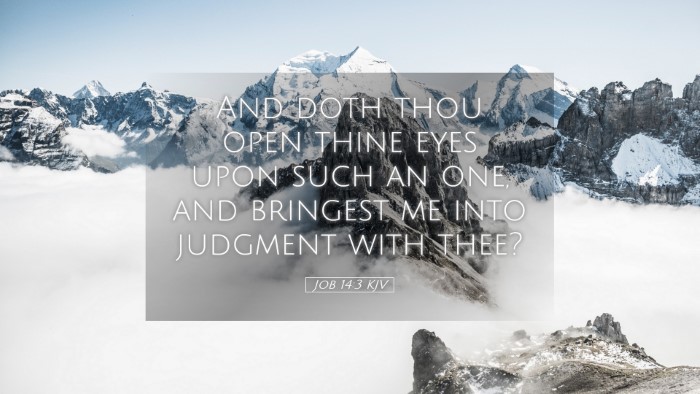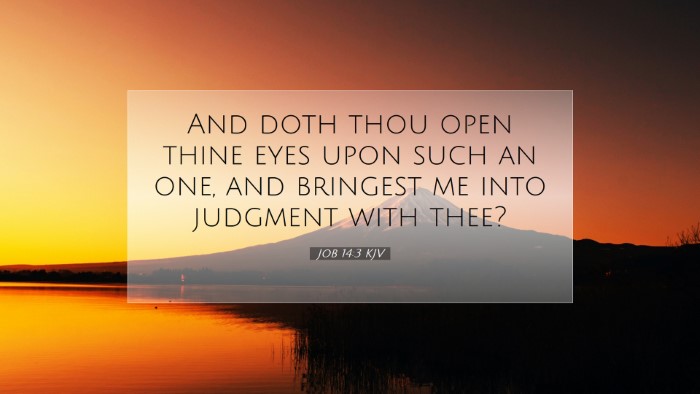Old Testament
Genesis Exodus Leviticus Numbers Deuteronomy Joshua Judges Ruth 1 Samuel 2 Samuel 1 Kings 2 Kings 1 Chronicles 2 Chronicles Ezra Nehemiah Esther Job Psalms Proverbs Ecclesiastes Song of Solomon Isaiah Jeremiah Lamentations Ezekiel Daniel Hosea Joel Amos Obadiah Jonah Micah Nahum Habakkuk Zephaniah Haggai Zechariah MalachiJob 14:3
Job 14:3 KJV
And doth thou open thine eyes upon such an one, and bringest me into judgment with thee?
Job 14:3 Bible Commentary
Commentary on Job 14:3
In the book of Job, the dialogue between Job and his friends encapsulates profound truths about human suffering and divine justice. Job 14:3 states:
"And dost thou open thine eyes upon such an one, and bringest me into judgment with thee?" (Job 14:3, KJV)
Contextual Background
Job is heavily engaged in a monologue that reflects his deep anguish and bewilderment in the face of suffering. This verse arises amidst his lamentation where Job wrestles with the concept of God’s scrutiny over human frailty. This examination offers rich material for analysis from various theological perspectives.
Insights from Matthew Henry
Matthew Henry interprets this verse within the context of Job’s suffering. He notes that Job feels overwhelmed by the thought of God, who seems to scrutinize every detail of his existence. Henry emphasizes how Job questions the assertion that God would direct His gaze toward someone so fragile and sinful.
- The Nature of God’s Judgment: Job questions the fairness of God’s examination of humanity, comparing God's eternal perfection to man’s transient existence.
- Human Worthlessness: Henry remarks on the feelings of worthlessness that pervade Job's thoughts; he perceives himself as insignificant compared to God’s majesty.
- The Desire for Understanding: Job’s inquiry is rooted in a desire for clarification regarding the reasons behind his suffering.
Insights from Albert Barnes
Albert Barnes expands upon Job's rhetorical questioning in this verse, revealing the theological implications of divine judgment.
- Rhetorical Nature: Barnes points out that Job uses a rhetorical question to express his incredulity about God's interest in mankind’s fate.
- God’s Omniscience: He discusses the relationship between God’s omniscience and human sinfulness, noting that while God sees all, the frailty of human nature should elicit compassion rather than condemnation.
- Job's Lament: Barnes highlights Job’s feeling of abandonment, contrasting human suffering with divine scrutiny.
Insights from Adam Clarke
Adam Clarke approaches this verse with a focus on the emotive aspects of Job's struggle.
- Personal Experience of Suffering: Clarke contextualizes Job’s plea, suggesting that it epitomizes the emotional turmoil that stems from a personal encounter with pain and loss.
- Existential Questioning: He identifies that Job’s question underscores a universal human crisis—how can a just God regard our mortal existence that is riddled with suffering?
- The Need for Mediation: Clarke touches upon the desire for a mediator between God and humanity, a recurring theme in Job’s discourse, reflecting an essential Christian theology of Christ’s intercessory role.
Theological Reflections
This verse opens up profound theological discussions relevant to pastors, students, and scholars alike:
- The Problem of Evil: Engaging with Job's question invites exploration into theodicy—the defense of God's goodness despite the existence of evil.
- Human Dignity: Despite Job’s acknowledgment of human frailty, it’s essential to reflect on the theological assertion that mankind is made in God’s image; thus, each individual's worth is inherent.
- God’s Justice: Job's lament raises questions concerning God’s justice—how can God be just while allowing suffering, a query that resonates throughout theological discourse.
Conclusion
Job 14:3 serves as a poignant reminder that human suffering profoundly questions the nature of God’s justice and mercy. The insights gleaned from the commentaries of Matthew Henry, Albert Barnes, and Adam Clarke collectively enrich our understanding of this complex issue. For believers and theologians, this exploration encourages a humble approach to suffering within the context of faith and divine communion.


